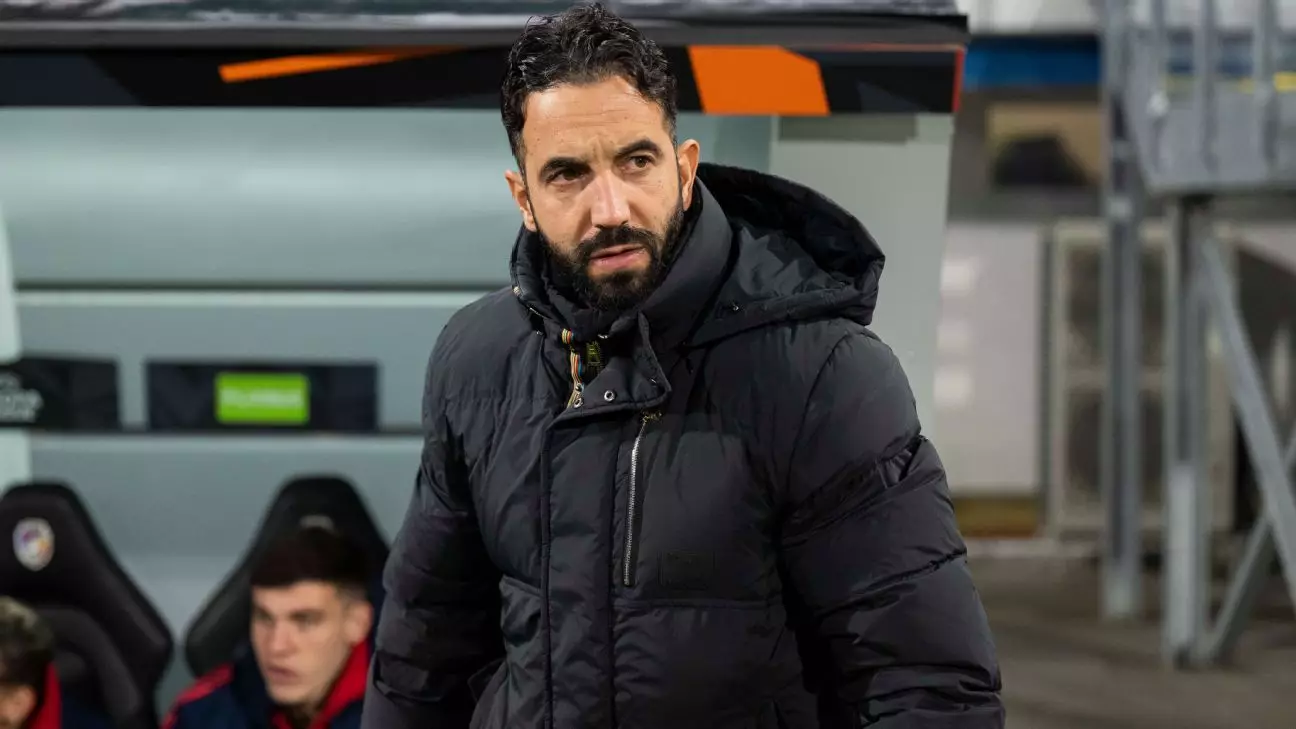As the highly anticipated Manchester derby approaches, football pundits, fans, and players alike are abuzz with discussions about the current form of Manchester City and Manchester United. Ruben Amorim, the new manager of United, entered the fray by declaring City to be in a “better place” despite their dismal streak of results. This statement raises eyebrows given that City, known for their attacking prowess under Pep Guardiola, has managed only one win in their last ten matches across all competitions. Comparatively, United appears to have regained some momentum with their recent Europa League victory over FC Viktoria Plzen.
While Amorim’s optimism towards City could be seen as strategic mind games, it also underscores an essential truth in football: history and reputation often weigh heavier than current performance. City’s past successes make them a formidable opponent regardless of recent form. With the backdrop of this derby, however, one must question whether Amorim’s perspective reflects an understanding of Manchester’s intricate football culture or a reluctance to acknowledge the struggles at his own club.
The Manchester derby has long been a beacon of rivalry, passionate fanfare, and the pursuit of local bragging rights. Historically, the competition between United and City has fluctuated; United has stood as a legendary force in English football, winning numerous Premier League titles and Champions League trophies. City, however, has transformed into a powerhouse in recent years, clinching the Premier League title multiple times.
Amorim makes a valid point when he mentions the desire for future derbies to carry the weight of title implications. Currently, however, it seems that both clubs are in transitional phases. United languishes in 13th place in the Premier League table, while City is trailing behind the likes of Liverpool and Arsenal. Amorim’s hope to rekindle the essence of a title-implicating derby may represent the aspirations of the entire United fanbase, who long for a return to glory.
As the manager of a team undergoing significant reconstruction, Amorim’s concentration needs to be focused on fixing immediate concerns rather than obsessing over the adversaries across Manchester. The rise and fall of players like goalkeeper André Onana exemplify the challenges posed to Amorim, as errors attributable to individual performances could have wider repercussions for team morale. Following a costly mistake in the loss against Nottingham, Onana’s confidence appeared fragile. The manager’s public backing of his player speaks volumes about the type of support system Amorim intends to cultivate during his tenure.
Moreover, Amorim’s reference to needing to “work on this” indicates a commitment to more than just immediate results; he recognizes the importance of building a cohesive unit where players adapt to the demanding style of play he wishes to implement. Such acknowledgment positions Amorim not just as a transient figure, but as a coach committed to establishing a long-term vision for success at United.
As both teams prepare for a restart, it’s clear that the upcoming Manchester derby is more than just a staple of local rivalry; it embodies the struggles and aspirations of two clubs seeking to redefine themselves. For Amorim and United, the aim transcends mere match results—he harbors ambitions of making the derby a clutch moment of season-defining significance again.
With close friend Hugo Viana’s impending transfer to City as the new director of football, the storytelling of Manchester’s football rivalry continues to evolve. Amorim’s categorical dismissal of any City overtures reinforces his dedication to United. This singular focus can potentially lay the groundwork for a fresh narrative.
The Manchester derby this Sunday arrives not just as a football match but as a fierce battle of wills and a testament to resilience. One cannot overlook the fractured landscape both clubs navigate, fueled by history, individual errors, and ambitious beliefs. Amorim’s comments throw light on the complexities of current football dynamics and perhaps hint at a more riveting narrative of rivalry in the seasons to come. The stage is set; what remains is how it will unfold on the hallowed grounds of the Etihad Stadium.

Leave a Reply